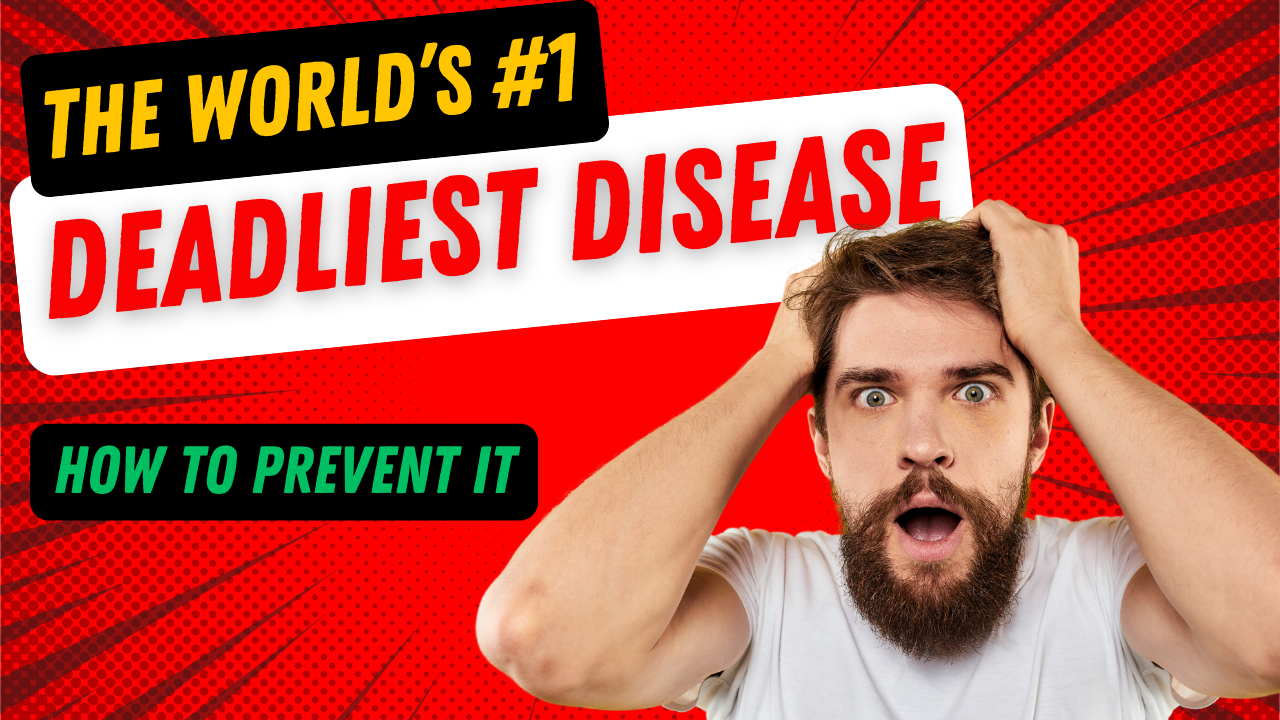In the quest to understand global health, a crucial question emerges: what are the deadliest diseases ravaging our world today, and more importantly, how can we prevent them? This article delves into this significant inquiry, summarizing the most lethal ailments before revealing the number one killer. What could it be? Let’s find out and stay tuned till the end to see how to prevent it.
Several diseases compete for the notorious title of the world’s deadliest. Cancer, with its many forms, consistently ranks high, claiming millions of lives annually through a complex interplay of genetic, environmental, and lifestyle factors. Infectious diseases like HIV/AIDS and tuberculosis, though somewhat controlled, still pose a significant threat, particularly in low-income countries. Respiratory diseases such as COPD, often exacerbated by smoking and pollution, continue to be a leading cause of mortality. Diabetes and Alzheimer’s disease, though chronic, have far-reaching impacts that contribute to their high death tolls.
But standing above them all, the number one deadliest disease worldwide is Cardiovascular Disease (CVD). Encompassing heart attacks, strokes, and other heart-related conditions, CVD is the leading cause of death globally, according to the World Health Organization.
So, what makes cardiovascular diseases so lethal, and more importantly, how can we prevent them? The answer lies in understanding the risk factors and implementing effective prevention strategies.
Risk Factors for Cardiovascular Diseases
The primary risk factors for CVD include: Unhealthy Diet, Physical Inactivity, Tobacco Use, Harmful Use of Alcohol, Hypertension (high blood pressure), Hyperlipidemia (high levels of fat in the blood), Diabetes and Obesity.
These factors can lead to the development of atherosclerosis, a condition characterized by the narrowing of the arteries due to plaque buildup, ultimately leading to heart attacks and strokes.
Prevention Tactics
1. Healthy Eating: A diet rich in fruits, vegetables, whole grains, and lean proteins can significantly lower the risk of CVD. It’s crucial to limit the intake of saturated fats, trans fats, cholesterol, salt (sodium), and added sugars.
2. Regular Physical Activity: Engaging in at least 150 minutes of moderate-intensity aerobic physical activity throughout the week can reduce the risk of heart disease. Exercise helps control weight, reduces blood pressure and cholesterol levels, and improves overall heart health.
3. Quit Smoking: Smoking is a significant risk factor for heart disease. Quitting smoking can drastically reduce the risk of CVD, as well as improve overall health.
4. Limit Alcohol Consumption: Excessive alcohol intake can lead to high blood pressure, heart failure, and even stroke. Limiting alcohol consumption can play a vital role in heart health.
5. Manage Blood Pressure: High blood pressure is a major risk factor for heart disease. Regularly monitoring and controlling blood pressure through lifestyle changes and medication (if prescribed) is essential.
6. Control Cholesterol and Triglyceride Levels: High levels of cholesterol can clog arteries and increase the risk of heart attack and stroke. A healthy diet, regular exercise, and medication (if needed) can help manage cholesterol and triglyceride levels.
7. Maintain a Healthy Weight: Obesity increases the risk of heart disease. Maintaining a healthy weight through diet and exercise is vital.
8. Manage Stress: Chronic stress may contribute to heart disease, especially if it leads to smoking, overeating, or not exercising. Finding ways to manage stress, such as meditation, exercise, and proper sleep, is beneficial.
9. Regular Health Screenings: Regular check-ups are crucial to detect risk factors like high blood pressure, high cholesterol, and diabetes early on.
Conclusion
While Cardiovascular Diseases reign as the number one killer globally, their prevention largely lies within our control. Through lifestyle changes and health awareness, we can significantly reduce our risk. Will you take the steps necessary to protect your heart health?
If you liked this video and plan to take control of your health, we also recommend watching this other video about healthy weight loss.
Wishing you a healthy and balanced life!
A video version of this article, visit:


